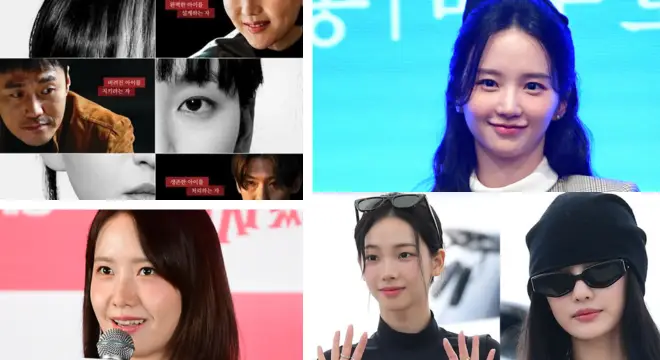|
Getting your Trinity Audio player ready...
|
The South Korean celebrity scene was rocked on October 20, 2025, by the rapid proliferation of screenshots of reported private chats with actor Lee Yi-kyung Controversy on social media and online forums.
What started as a few suspicious screenshots turned into one of the most discussed scandals of the year, all within just a few hours.
The chats, allegedly retrieved from KakaoTalk and Instagram DMs, supposedly revealed Lee sending illicit messages to multiple women, with sufficient sexual undertones to delight, outrage, and intrigue.
By the evening, Lee’s agency, Sangyoung ENT, issued a robust denial of each allegation and stated the potential for legal action against what they termed “false information and malicious rumors.”
What Triggered the Controversy
The spark came from a post titled “Revealing the True Side of Lee Yi-kyung,” uploaded to an online community early that morning. The anonymous writer, referred to as “A,” shared screenshots of conversations allegedly with the actor and claimed that Lee had engaged in sexually explicit chats and made inappropriate requests.
In the post, A said they had been “scared and confused” by the behavior but chose to remain silent temporarily, pretending everything was normal to “gather more evidence.”
That statement — along with the screenshots — quickly spread beyond the original platform. Within hours, major Korean forums, X (formerly Twitter), and international K-drama communities were filled with reposts, opinions, and translated versions of the alleged chats.
As curiosity turned into frenzy, new accounts began posting unverified claims, further blurring the line between fact and rumor. For many fans, it was déjà vu — yet another celebrity accused online before any official confirmation.
Agency’s Official Response
By late afternoon, Sangyoung ENT moved swiftly.
In a detailed statement, the agency categorically denied all claims, calling them fabricated and malicious.
“We are preparing legal measures against the spread of false information and malicious rumors,” Sangyoung ENT declared.
“Given the seriousness of this matter, we will calculate both direct and indirect damages caused by the false information and take all appropriate actions.”
The agency also revealed a previously unknown detail: five months earlier, the same individual had allegedly sent a threatening email demanding money from the actor. When Sangyoung ENT warned of legal steps, that person apologized and backed down.
Now, the agency believes the viral post could be a continuation of that earlier extortion attempt.
In its warning, Sangyoung ENT reminded the public that even reposting or resharing defamatory content may result in legal penalties.
“Not only the original author but anyone who spreads such content can face consequences,” the statement read.
“We will continue to protect our artist through monitoring and reports from fans.”
Public and Media Reaction
Public opinion split almost immediately.
Many longtime fans defended Lee Yi-kyung, arguing that anyone can fake screenshots in today’s digital world. Others, however, demanded transparency, insisting that the agency release more concrete evidence to clear his name.
On Korean social platforms like TheQoo and Nate Pann, heated discussions questioned the ethics of sharing private materials without proof. Some netizens pointed out that such exposés often destroy reputations even when later proven false.
Journalists also weighed in. Several columnists called it another reminder of how Korean celebrities are increasingly vulnerable to blackmail, privacy invasion, and fabricated scandals.
“This case mirrors a growing pattern in which online leaks — true or false — cause irreversible damage before any legal process can even begin,” said one Seoul-based culture reporter.
The issue reignited a broader debate about digital accountability — how easily a single anonymous post can dominate headlines and shape public perception in a few hours.

Who Is Lee Yi-kyung?
To his many viewers, Lee Yi-kyung is a figure who became renowned since his early career for his frank sense of humor and likable personality instead of scandal.
A 1989 birth, Lee Yi‑kyung made his debut as a performer in the 2012 independent film titled “White Night, ” where he understatedly became a nuanced performer in some good stead. Lee Yi-kyung found comfort as a performer of drama and comedy, particularly with roles in “Confession Couple” and “Eulachacha Waikiki“.
His talent for lighthearted humor also made him a favorite on Korean variety shows. Lee currently appears in “Hangout with Yoo” (MBC), “The Return of Superman” (KBS), and “I’m Solo” (SBS Plus, ENA). Fans often describe him as relatable, self-deprecating, and genuine — qualities that make the allegations especially difficult for them to believe.
Legal Perspective and Possible Next Steps
In South Korea, defamation law applies even when statements contain some truth, as long as they damage reputation without clear public benefit. Under the Information and Communications Network Act, individuals who create or spread false rumors online can face fines or even imprisonment.
Legal experts say Sangyoung ENT could file both civil and criminal complaints — for defamation, spreading false information, and attempted blackmail — against the accuser and those redistributing the material.
“The line between exposing truth and spreading defamation is thin, but the legal consequences are not,” said a Seoul-based entertainment law attorney.
If the accuser’s earlier apology and money demand are verified, the case could strengthen the agency’s position and potentially lead to criminal charges for extortion.
Wider Industry Context
This isn’t the first time a celebrity from Korea has dealt with online claims that appeared out of nowhere. In recent years, actors, idols and influencers have been subject to similar claims that have led to large scandals, and many of these claims were later proven to be an embellishment or completely false.
The social media culture of “reveal posts” that are often unverified and sensationalized has blurred the line between accountability and harassment. Agencies have responded aggressively to claims made against them by utilizing cyber-monitoring teams and soliciting fans to monitor, screenshot, and report defamation.
Inevitably, the cycle repeats: screenshots are shared with outrage, and someone or multiple people’s reputations are put on pause to disentangle the facts.
Conclusion
For the time being, Sangyoung ENT remains steadfast, maintaining that the allegations have no foundation and promising that no rumor will go unpunished. Actor Lee Yi-kyung himself has not commented since the allegations came to light, neither denying nor confirming the allegations personally — a move interpreted as a tactical option while the agency’s legal team builds its case.
Online, the debate continues. Some are expressing disappointment, some sympathy, and many are simply anxious to see this resolved with the truth emerging as soon as possible. Whatever happens, the Lee Yi-kyung controversy 2025 illustrates a new concern in popular culture: how quickly online information can either build or destroy a public persona.
As fans and media are awaiting updates, the takeaway is simple — these allegations go far beyond a single celebrity.
It speaks to the issue of how fragile privacy is in an online world, and to the importance of sorting fact from fiction before overwhelming judgment is the villain that supersedes the truth.


